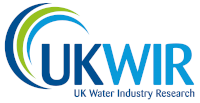House of Lords committee calls for a UK nitrogen management strategy
01/08/2025
Urgent regulatory clarity across the water and agriculture sectors is needed to improve the UK’s management and reuse of nitrogen, the House of Lords Environment and Climate Change Committee has told the Government.
The group, chaired by Baroness Sheehan, made a series of recommendations in a report entitled "Nitrogen: Time to Reduce, Recycle, Reuse," published on July 24, 2025, following an inquiry launched in January.
The inquiry, which heard from a wide range of witnesses including UKWIR CEO Mike Rose, focused on three key areas: simplifying the regulatory system, implementing a circular approach to nitrogen management, and taking a more strategic approach to nitrogen pollution.
The committee’s recommendations to the Government include:
- Defra to “review urgently the roles and responsibilities of different regulators as well as simplifying and rationalising the regulatory system” - supporting the independent reviews of Dan Corry (Defra regulation) and Sir Jon Cunliffe (water sector).
- Publish a national “Nitrogen Strategy” within two years, adopting “a cross-sectoral” and “circular economy approach” that includes a “Nitrogen Balance Sheet.”
- Improve monitoring of nitrous emissions to air and water from wastewater treatment plants, including nutrient loads from storm overflows, and set a nitrogen reduction target to increase accountability.
- Promote collaboration between the wastewater and agricultural sectors to implement catchment-based and nature-based approaches.
- Support the expansion of nutrient recovery technologies, not only nitrogen removal, in the wastewater sector from 2025 to 2030.
- Increase the accountability of farmers by clarifying wording in the Farming Rules for Water, Nitrate Vulnerable Zones and Silage, Slurry and Fuel Oil Regulations “as a matter of priority and by summer 2026 at the latest.”
Nitrogen byproducts can harm the environment and human health
While essential for life, nitrogen becomes harmful in the form of byproducts such as ammonia from agriculture, wastewater, industry and transport, damaging ecosystems and human health.
With the two biggest contributors of nitrates into water - agriculture at 70 per cent and water at 25 to 30 per cent – the report’s recommendations focused mainly on these two sectors.
They said an unwieldy regulatory landscape was a key factor in why the UK had not progressed as well as the Netherlands or Denmark in tackling this problem.
“Key research” can unlock nitrogen recovery – UKWIR CEO Mike Rose
Nitrogen recovery, including from wastewater, “should be maximised,” the Lords concluded after hearing oral evidence from Mike Rose, at an inquiry session in March, that opportunities could be unlocked through “key research activities.”
The Lords said in their report: “Mike Rose told us that there are various potential options for nitrogen recovery from sewage that include developing high-concentrated ammonia and slow-release fertiliser products but noted that there are regulatory obstacles, including the limitations of the existing end-of-waste regulations.”
Mike, welcoming the report’s findings, said: “The Lords’ call for a coordinated national strategy for nitrogen management makes sense. As the provider of impartial science-based research for the water sector, UKWIR will continue to deliver, enhance and constructively promote the evidence to aid informed policy making.”
